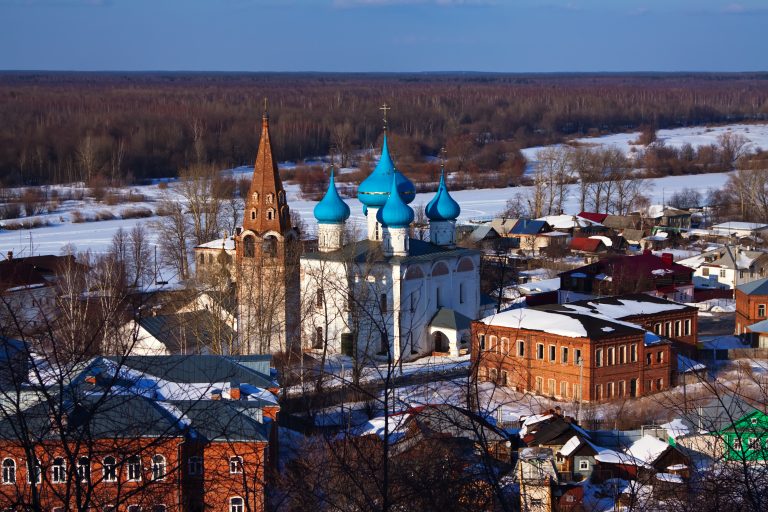As the world becomes increasingly interconnected, digital nomadism has become popular, enabling individuals to work remotely while exploring different parts of the world. With its burgeoning tech scene and increasing number of remote workers, Nigeria has seen a rising interest in nomad visas. These visas allow professionals to live and work in foreign countries legally. This guide provides a comprehensive overview of the nomad visa, focusing on the application process for Nigerians, estimated costs, and financial requirements.
Understanding the Nomad Visa
A nomad visa, also known as a digital nomad visa, is a type of visa that allows individuals to reside in a country while working remotely for a foreign employer or managing a location-independent business. Unlike traditional work visas, which often require sponsorship from a local employer, the nomad visa caters to the growing community of digital nomads—professionals who leverage technology to work from anywhere in the world.
Countries like Estonia, Barbados, Portugal, and many others have introduced nomad visas to attract remote workers. These visas typically offer a stay period ranging from six months to a year, with possibilities for renewal. The primary aim is to boost local economies through the spending power of foreign residents without taking jobs from the local workforce.
Benefits of the Nomad Visa
1. Legal Residency: The nomad visa provides legal residency in the host country, allowing you to live and work there without requiring a traditional work visa.
2.Travel Opportunities: Depending on the host country, a nomad visa can provide access to travel within regions such as the Schengen Area in Europe.
3. Networking and Growth: Living abroad offers opportunities for networking with other digital nomads, local professionals, and expanding your horizons.
4. Cultural Experience: Immersing yourself in a new culture can be a rewarding personal and professional experience.
Popular Nomad Visa Destinations
Several countries have emerged as popular destinations for digital nomads due to their favorable policies, vibrant cultures, and quality of life. Here are a few notable options:
1. Estonia: Estonia’s Digital Nomad Visa allows remote workers to stay for up to a year. The country is known for its digital infrastructure, e-residency program, and high quality of life.
2. Barbados: The Barbados Welcome Stamp offers a year-long stay with the possibility of renewal. Barbados attracts nomads with its beautiful beaches, warm climate, and vibrant community.
3. Portugal: Portugal’s D7 Visa caters to remote workers and retirees. With its rich history, scenic landscapes, and affordable cost of living, Portugal is a top choice for many digital nomads.
4. Croatia: Croatia offers a Digital Nomad Residence Permit, allowing remote workers to stay for up to a year. The country’s stunning coastline, historical sites, and welcoming atmosphere make it a desirable destination.
5. Georgia: Georgia’s Remotely from Georgia program offers a one-year stay with the possibility of extension. The country is known for its low cost of living, delicious cuisine, and friendly locals.
Financial Requirements
To qualify for a nomad visa, applicants must demonstrate sufficient income to support themselves during their stay. This typically involves showing proof of remote work or passive income.
1. Proof of Savings: Applicants may also need to show proof of savings to cover initial costs and any emergencies that might arise during their stay. This is usually equivalent to 3-6 months of living expenses in the host country.
2. For Families: If relocating with family, additional income is required for each dependent. Typically, an additional 50% of the required income for the spouse and 30% for each child is recommended.
3. Minimum Income Requirements: The specific amount varies by country, but generally, applicants must demonstrate a minimum monthly income that exceeds the local cost of living. For example:
- Portugal: Approximately €1,000 to €1,200 per month for a single applicant.
- Estonia: Around €3,504 per month (based on a monthly salary of €1,170 after taxes).
- Barbados: At least $50,000 per year.
Estimated Costs
The costs associated with obtaining a nomad visa include the application fee, travel expenses, and initial settlement costs.
1. Visa Application Fee: This varies by country. For instance:
- Portugal: Approximately €90.
- Estonia: Around €100-€120.
- Barbados: $2,000 for an individual and $3,000 for a family application.
2. Travel Expenses: Flight tickets and travel insurance. For example, a round-trip ticket from Nigeria to Portugal might cost around €500 to €1,000 depending on the season and booking time.
3. Initial Settlement Costs: These include the cost of accommodation, transportation, and daily expenses for the first month. It is advisable to budget at least €2,000 to €3,000 for initial costs.
Documentation and Application Process
The application process for a nomad visa involves several steps, including gathering documentation, submitting the application, and possibly attending an interview. Here is a general outline:
1. Gather Necessary Documents
- Valid Passport: Ensure your Nigerian passport is valid for at least six months beyond your intended stay.
- Proof of Income: Bank statements, employment contracts, or freelance contracts demonstrating a stable and sufficient income.
- Health Insurance: Obtain comprehensive health insurance covering medical expenses in the host country.
- Accommodation Proof: Evidence of accommodation, such as a rental agreement or hotel booking.
- Criminal Record Certificate: Obtain a police clearance certificate from Nigerian authorities.
- Application Form: Complete the specific visa application form available on the consulate’s or immigration office’s website.
2. Submit Application
- Visit the consulate or embassy of the host country in Nigeria to submit your application. Ensure you have all the original documents and photocopies.
- Pay the visa application fee.
- Schedule an appointment for submission and/or interview if required.
3. Attend Visa Interview
- Be prepared to discuss your reasons for moving, your financial stability, and your plans while living in the host country.
- Provide any additional information requested by the consulate officer.
4. Wait for Processing
- Processing times vary by country but typically range from a few weeks to a couple of months. Follow up with the consulate if necessary.
5. Receive Visa and Travel
- Once your visa is approved, you will receive a visa sticker in your passport.
- Book your flight and prepare for your move.
- Upon arrival, you will need to register with local authorities and obtain a residence permit.
Settling in Your New Country
1. Finding Accommodation
- Temporary Housing: Initially, consider short-term rental options such as Airbnb or serviced apartments to give you time to explore and find a suitable long-term residence.
- Long-term Rentals: Research neighborhoods and find a long-term rental that fits your needs and budget. Use local real estate websites and agencies for assistance.
2. Registering with Local Authorities
- Local Registration: Within the first few weeks of your arrival, visit the local municipal office to register your residence.
- Tax Number: Obtain a tax identification number required for various transactions, such as opening a bank account and signing rental agreements.
- Residence Permit: Visit the immigration office to apply for your residence permit. Bring your visa, proof of address, health insurance, and financial documentation.
3. Healthcare and Insurance
- Health Insurance: Ensure your health insurance is valid and comprehensive. You may choose to enroll in the public healthcare system if available.
- Medical Services: Register with a local health center to access medical services. Many countries offer well-regarded healthcare systems, both public and private.
4. Banking and Finances
- Open a Bank Account: Choose a local bank and open an account. You will need your tax number, passport, proof of address, and proof of income.
- Managing Finances: Familiarize yourself with the cost of living and manage your finances accordingly. Costs vary by country and region.
Embracing the Lifestyle
1. Cultural Adaptation
- Learn the Language: Enroll in language classes or use online resources to learn the local language. This enhances your experience and helps with integration.
- Social Integration: Participate in local events, join clubs or groups, and engage with the community to build relationships and immerse yourself in the culture.
2. Work-Life Balance
- Work Environment: Many countries have growing numbers of coworking spaces and cafes suitable for remote work. Explore options to find a productive work environment.
- Leisure and Recreation: Take advantage of local landscapes, beaches, and historical sites. Enjoy local cuisine, festivals, and recreational activities.
Legal and Tax Considerations
- Understand Local Laws: Familiarize yourself with local laws and regulations to ensure compliance and avoid legal issues.
- Tax Obligations: Consult with a tax advisor to understand your tax obligations in the host country and Nigeria. Many countries have tax treaties that may benefit expatriates.
Challenges and Considerations
While the nomad visa offers many benefits, there are challenges and considerations to keep in mind:
- Bureaucracy: Navigating foreign bureaucracy can be challenging. Patience and persistence are key, and seeking assistance from local professionals can help.
- Language Barrier: Learning the local language is essential for deeper integration and accessing certain services.
- Cultural Differences: Be prepared for cultural differences and approach them with an open mind. Respect local customs and traditions to build positive relationships.
- Cost of Living: Costs vary by country and region. Budget accordingly and plan your finances.
- Healthcare: Ensure your health insurance is comprehensive and understand how to access medical services.
Applying for a nomad visa offers Nigerian professionals an exciting opportunity to explore new cultures, enhance their careers, and enjoy a high quality of life while working remotely. The application process requires careful preparation and patience, but the benefits are substantial. By understanding the requirements, gathering necessary documentation, and embracing the new lifestyle, digital nomads from Nigeria can successfully navigate their move and thrive in their new environment. Whether it’s Portugal, Estonia, or Barbados, these destinations offer a welcoming atmosphere, rich cultural heritage, and vibrant digital nomad communities, making them ideal for combining work and adventure.








Leave a Comment